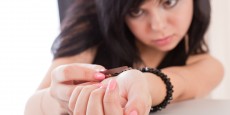

The following is excerpted from an online article posted by News Medical.
A good night’s sleep is essential for children’s health and development, but childhood sleep patterns may also be linked to future substance use. A new study, led by a team of Penn State researchers, found that adolescents were more likely to have consumed alcohol or tried marijuana by age 15 if they went to bed later and slept fewer hours during childhood and adolescence. The team published their findings in Annals of Epidemiology.
The research team explored childhood sleep at different developmental stages within the same sample of children to see if there’s an impact on later substance use, which few studies have investigated. They focused on two different facets of sleep health -; total duration of sleep and time of sleep or bedtime. The researchers explained that if children, especially school-aged children, go to bed later, it could affect their ability to sleep well.
The study drew on data from 1,514 children in the Future of Families and Child Wellbeing Study, a diverse longitudinal birth cohort of children from 20 cities across the United States. Parents reported their child’s regular weekday bedtime at ages three, five and nine. They also reported their child’s sleep duration at ages five and nine.
When the research team evaluated the relationship between childhood bedtime and sleep duration with future alcohol and marijuana use as teens, they found a longitudinal association. Teens were 45% more likely to try alcohol by age 15 if they had a later bedtime at age nine when compared to other children with earlier bedtimes at age nine. However, bedtime at age five wasn’t associated with future alcohol use, nor was sleep duration at ages five or nine. When it came to marijuana use, later bedtime at age five was associated with 26% increased odds of trying marijuana by age 15, while sleeping an hour less at age nine was associated with 19% increased odds of trying marijuana by age 15.
The research team also examined data from adolescents at age 15, who self-reported their bedtime, sleep duration and alcohol and marijuana use. They found that teens with a later bedtime had a 39% greater chance of drinking alcohol and a 34% greater chance of trying marijuana. Sleeping one hour less was associated with 28% increased odds of ever trying alcohol but wasn’t associated with marijuana use.
Source: News Medical
https://www.news-medical.net/news/20240813/Childhood-sleep-patterns-may-influence-adolescent-alcohol-and-marijuana-use.aspx
Source: Home Word






